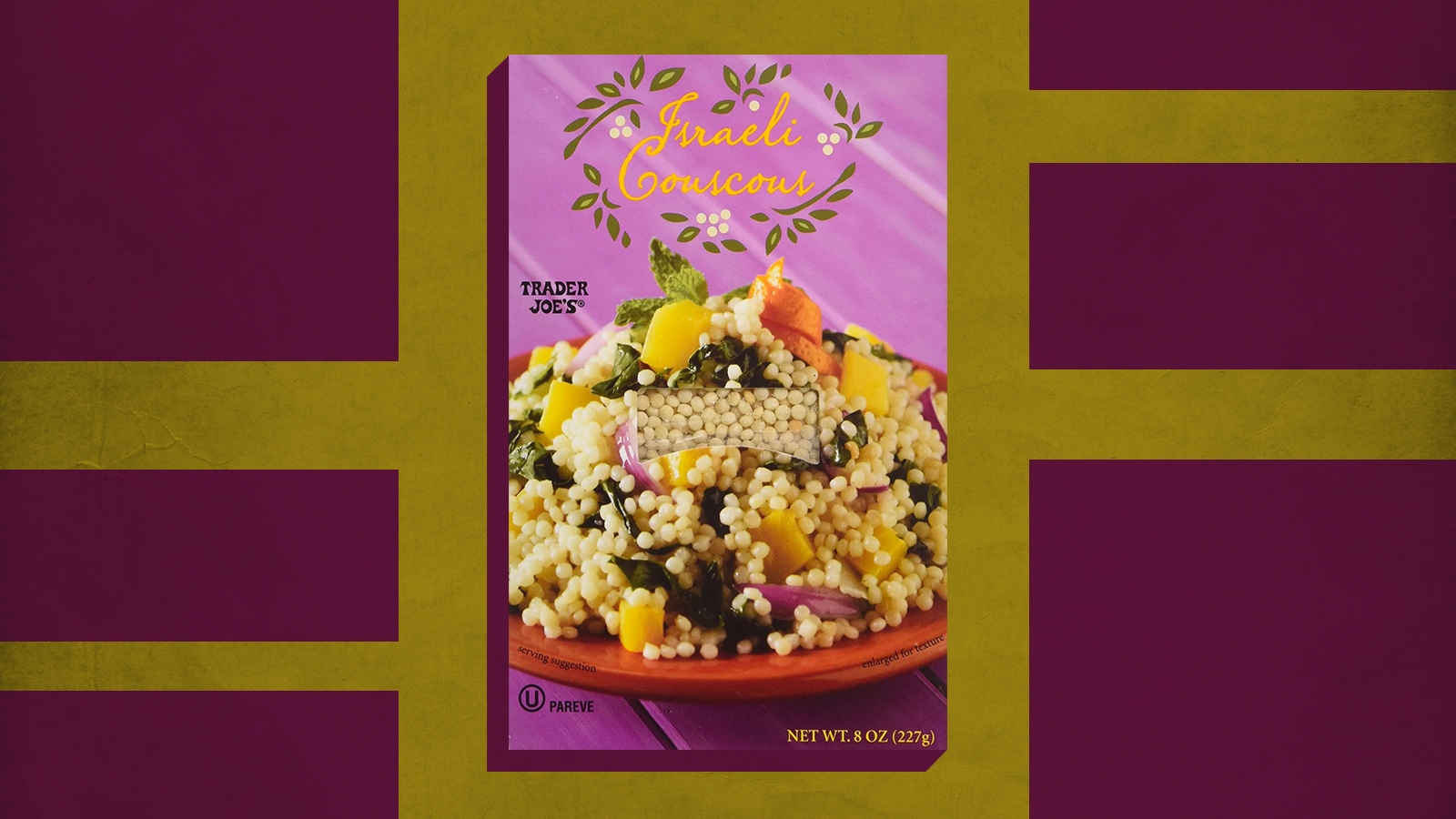Food fight in a Yale dining hall: couscous or ‘Israeli couscous’?
A stew over naming rights for Middle Eastern food bubbles up on campus — and leads to expressions of real pain and anger online

A stew over naming rights for Middle Eastern food bubbles up on campus — and leads to expressions of real pain and anger online

The company says the product is now being made in the United States

A stalwart of the Los Angeles kosher restaurant scene has closed its doors, citing the pandemic’s effect on business. The kosher Tunisian restaurant Harissa and its adjoining bakery and deli Got Kosher have closed for good, chef and owner Alain Cohen announced on Sunday. “We have been losing money for months and it is not…

It starts with a flurry of text. Where is the couscous!!? When are you going to cook our food in that column of yours? My Tunisian godsiblings want to know. I love couscous, but I am intimidated to cook it. Who am I, daughter of chopped liver and brisket, to attempt my Auntie Brigitte’s couscous?…

(JTA) — Not even couscous is safe from the Israeli-Palestinian conflict. For decades, Israelis and Palestinians have fought over land. They’ve fought over history. They’ve fought over holy sites and religious doctrine and water sources. Now, apparently, they’re fighting over the delicious grain dish that I always buy when I go to the supermarket, because…

For those of us who weren’t lucky enough to attend Brooklyn’s uber food fair Smorgasburg last weekend — or anyone who just couldn’t take the crowds, we don’t blame you — allow me to introduce you to New York’s newest Jewish food artisan: NYShuk. The husband-and-wife kitchen team debuted their menu of Middle Eastern specialties…

On a recent visit to New York, I was handed a menu in a restaurant, on which appeared the entree “Blackened salmon on a bed of Israeli couscous.” “Blackened” I knew; that’s slightly charred in a spicy sauce. But what was “Israeli couscous”? I’d lived in Israel for more than 40 years and never encountered…

Sukkot is one of the rare Jewish holidays that lacks traditional dishes, which is ironic since as a harvest holiday, it’s really all about the food. There’s plenty of instruction as to what belongs on the sukkah — figs, grapes, dates, and pomegranates are often sited. But when it comes to the meals that fill…








100% of profits support our journalism